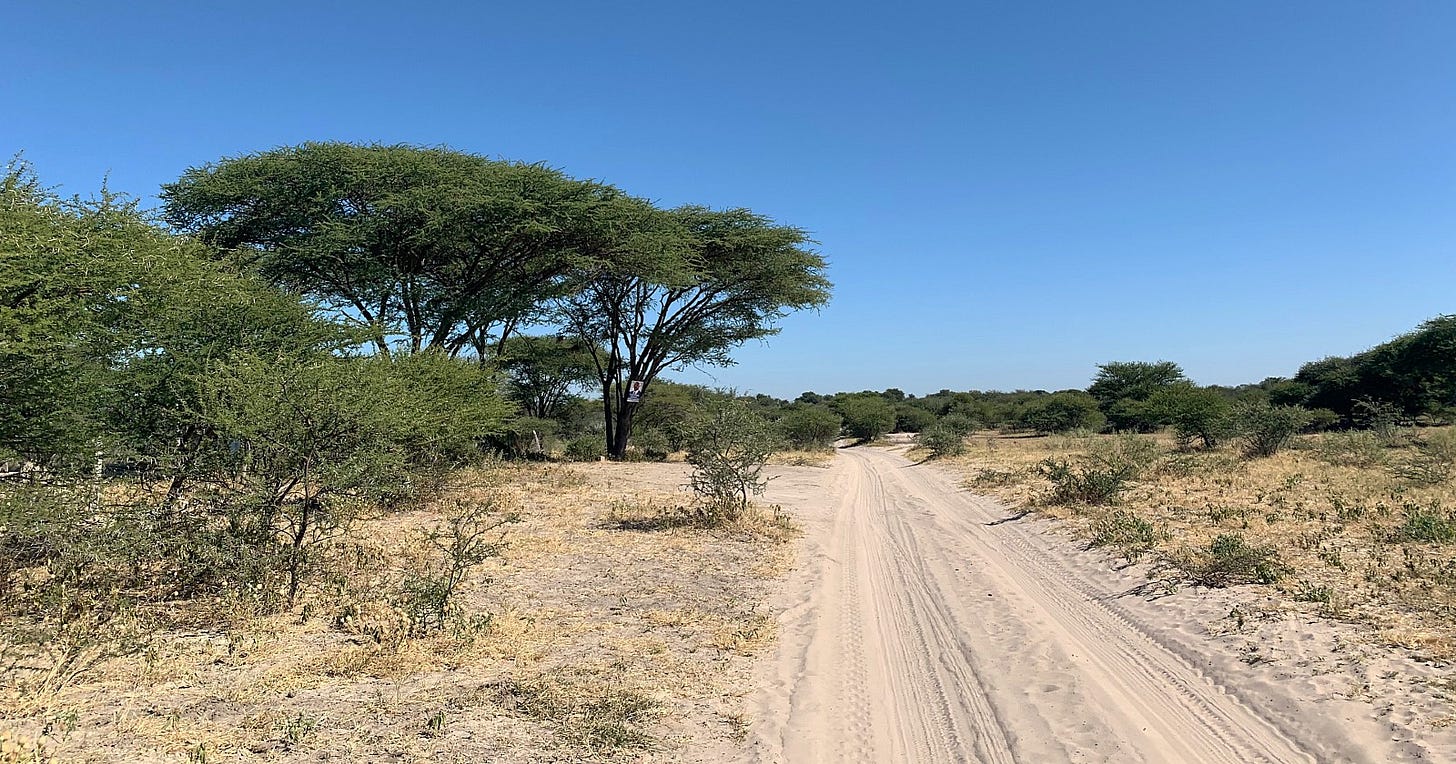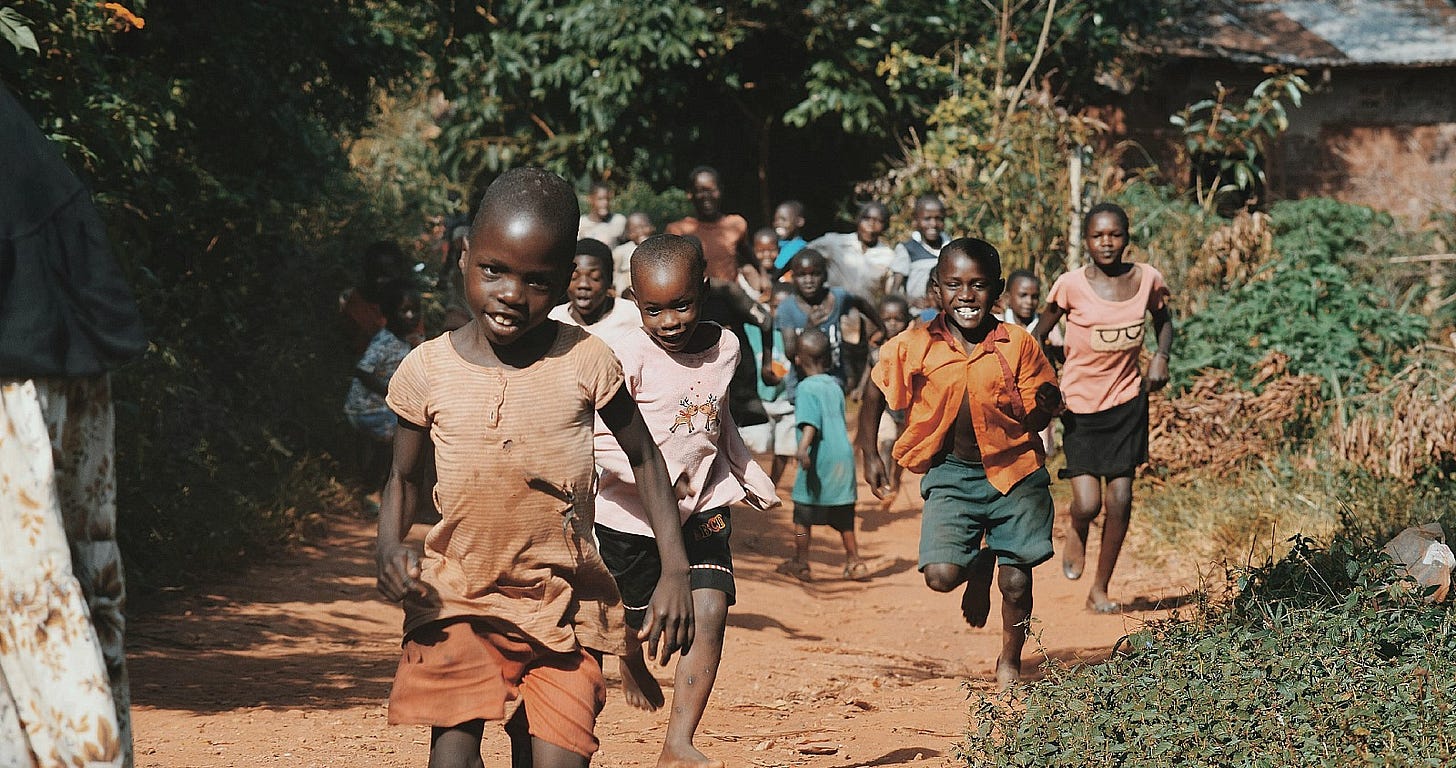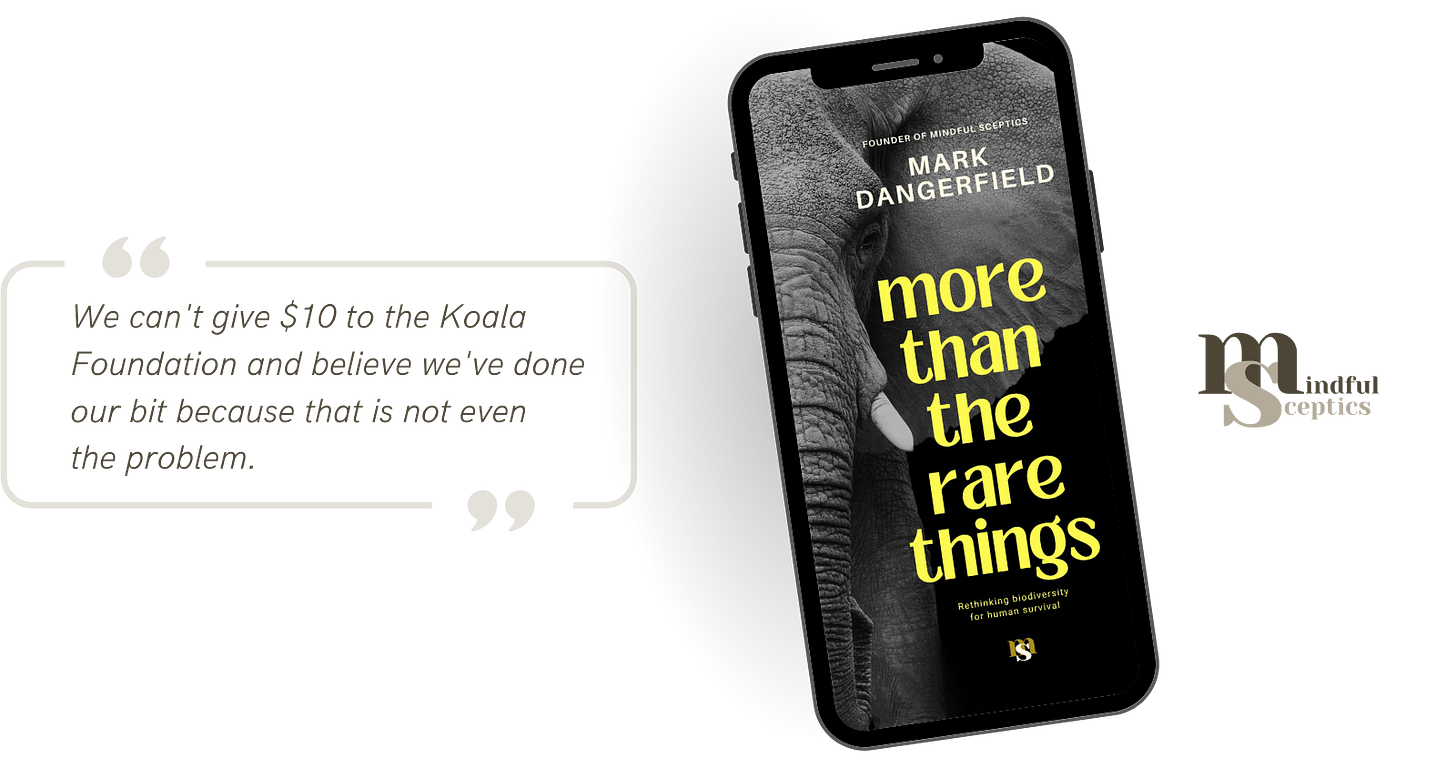Global Development Myths Hold Us All Back
What Diamonds and Desert Soils Taught Me About Progress
I used to believe solving global hunger was as simple as just producing more food.
Then, I spent seven years in Botswana, watching agricultural development projects fail despite the country's diamond wealth.
It became a structural see-saw between a policy aiming at food self-sufficiency which was a challenge in an arid land with desert soils and erratic summer rains, and a policy of fiscal security so that food was imported as needed.
Grow it or buy it?
And it still goes on.

This pattern of development repeats everywhere.
Well-intentioned people armed with oversimplified solutions rush to fix complex problems they don't fully understand. Often, the results are wasted resources, unintended consequences, and persistent challenges that should have been solved by now.
Let me share what four decades as an ecological scientist taught me about why we get development wrong and alternative ways to think about it.
First, some perspective.
Based on World Bank data, in 2000, about 76.4% of humans lived on less than $10 per day. That's 4.71 billion souls.
After 24 years of development efforts, a generation, what changed?
The proportion dropped by 20%, which is progress worth celebrating; proportionately fewer people survive on frugal means. But in absolute numbers?
In 2024, we still have 4.56 billion people living on less than $10 daily.

Why aren't we doing better?
The problem starts with how we frame development challenges. Take the UN's Sustainable Development Goals (SDGs). They're admirably ambitious… No Poverty, Zero Hunger, and Good Health for All.
But they often lead to what we might call the production fallacy, which is the belief that we just need to produce more of everything.
This thinking is seductive but wrong because…
1. We Already Produce Enough
The world currently grows enough food to feed everyone well. Yet hunger persists. Why? Because food security is about production, access, distribution, and waste. In Zimbabwe, I watched farmers struggle not because they couldn't grow food but because they couldn't get their produce to markets before it spoiled.
2. Context Matters More Than We Think
Development solutions that work in one place often fail spectacularly in another. I witnessed this firsthand comparing Botswana and Zimbabwe. Same region dramatically different contexts. Botswana could import food using diamond wealth. Zimbabwe needed local agricultural solutions because it was always on the brink of bankruptcy. One-size-fits-all thinking ignores these crucial differences.
3. Systems Beat Symptoms
Most development efforts target symptoms rather than systems. It's like treating a fever without identifying the infection. When I studied soil ecology, I learned that healthy soil depends on complex interactions between countless organisms. Trying to "fix" soil by adding a single nutrient ignores these relationships, often making things worse.
So, how should we think about development?
Start by questioning everything, especially success stories. When someone claims a development project ‘worked’, ask…
Worked for whom?
At what cost?
For how long?
What changed in the system?
Next, embrace complexity without being paralysed by it.
In my research on biodiversity loss, I discovered that focusing on rare species often misses the bigger picture. Common species maintain essential ecosystem functions.
Similarly, successful development often depends more on boring infrastructure than exciting innovations.

Finally, consider systems and feedback loops. Better thinking leads to better solutions.
The world doesn't need more oversimplified development theories; it requires more people who can thoughtfully engage with complexity.
The first step?
Admitting that most of what we think we know about development is wrong.



